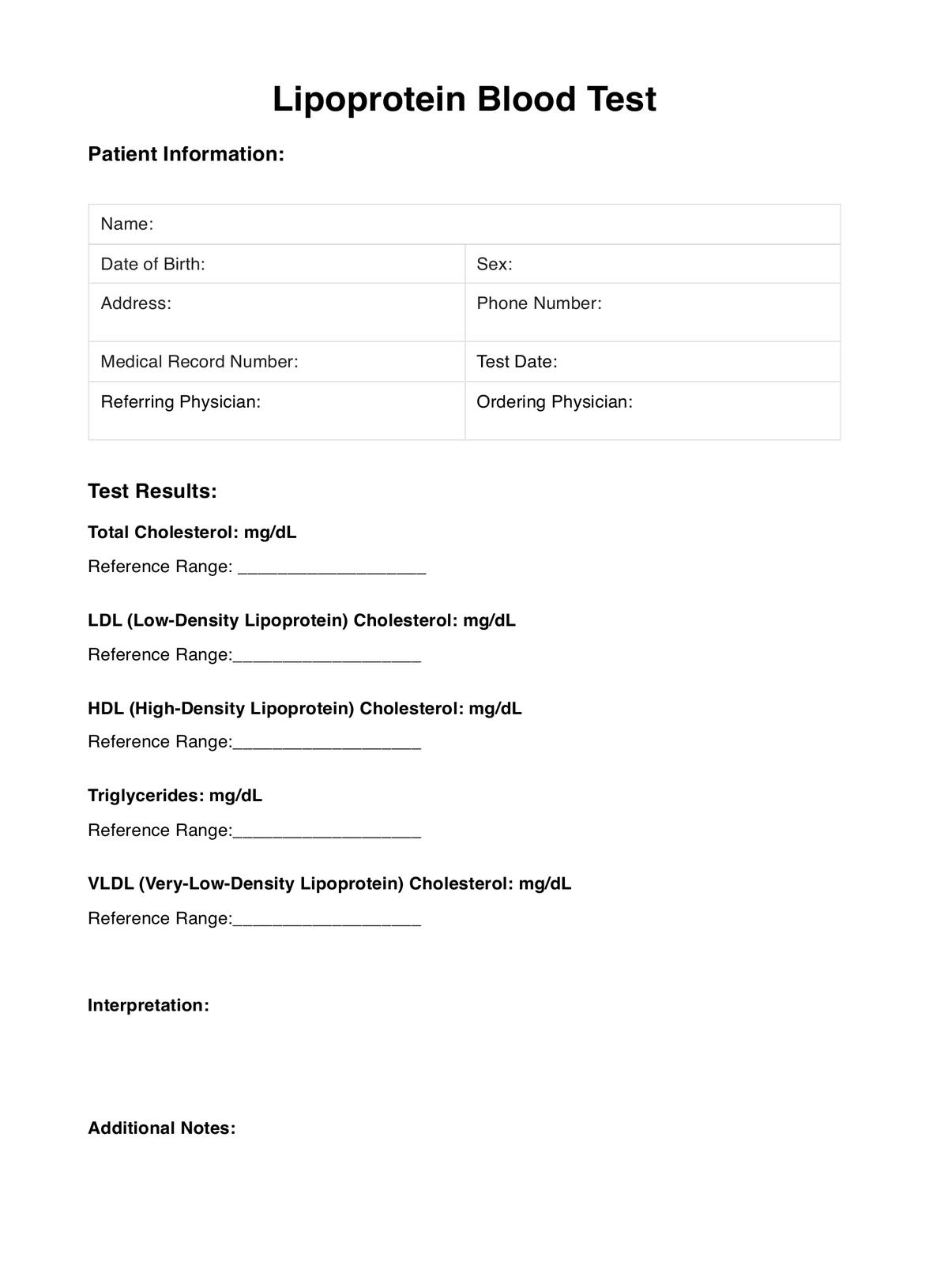The test is requested by healthcare providers, including cardiologists, family physicians, genetic counselors, and individuals concerned about their heart health.

Lipoprotein Blood
Know more about how Lipoprotein (a) Blood Tests can help streamline your heart health practice. Explore the science behind it and the convenience of Carepatron!
Use Template
Lipoprotein Blood Template
Commonly asked questions
The test involves a simple blood sample collection, which is then sent to a laboratory for analysis.
The test itself is quick but may require fasting for 9-12 hours beforehand. Results are typically available within a few days.
EHR and practice management software
Get started for free
*No credit card required
Free
$0/usd
Unlimited clients
Telehealth
1GB of storage
Client portal text
Automated billing and online payments











